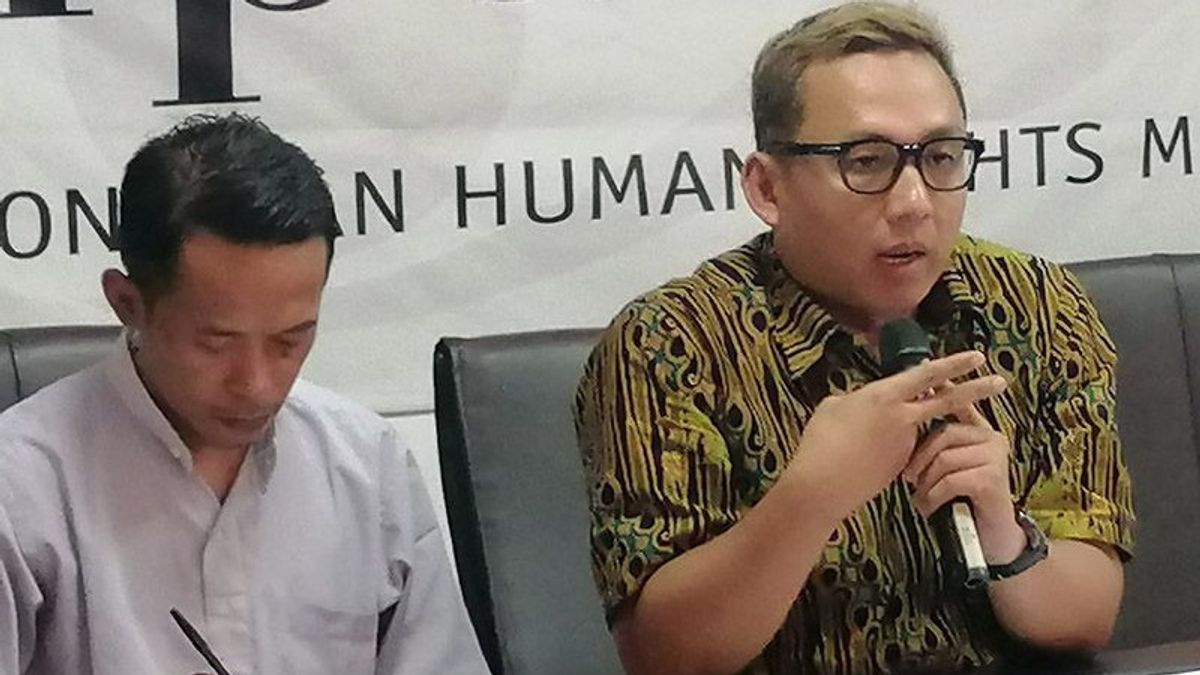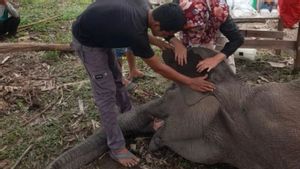JAKARTA - The Army Chief of Staff (KSAD) General Dudung Abdurachman is advised to focus more on preventing the infiltration of radicals into the TNI AD institutions.
"Given the duties and obligations of the Army Chief of Staff, according to Article 16 of Law 34/2004 concerning the TNI, it is the development of the strength and operational readiness of soldiers, so it is better for General Dudung to focus more on preventing the infiltration of radicals into the TNI AD," said a military observer from the Center for Intermestic and Diplomatic Engagement. (CIDE), Anton Aliabbas, in Jakarta, Antara, Wednesday, January 26.
According to him, this prevention effort clearly requires a solid, systematic and measurable strategy and mechanism. "This is important considering that the TNI is also not immune from radicalism," said Anton.
The head of CIDE said that the National Counterterrorism Agency (BNPT) itself had predicted the threat of terror network infiltration to government agencies, including the TNI. Moreover, he continued, Defense Minister Ryamizard Ryacudu in 2019 once said that around 3 percent of TNI soldiers were exposed to radicalism.
General Dudung Abdurachman's desire to involve his soldiers in dealing with radicalism is not new. On November 22, 2021, Dudung clearly stated his plan to involve the Babinsa to detect radicalism.
He admitted that there was a significant increase in the number of suspects in terrorism criminal cases in Indonesia. Data from the National Police Headquarters shows that the number of suspects in terrorism cases in 2021 will reach 370 people, an increase of around 62 percent from 2020 which reached 228 suspects.
However, the treatment of the phenomena of radicalism and terrorism should not be generalized because not all who are exposed to radicalism will automatically become terrorists. On the other hand, the handling of the problem of radicalism in Indonesia is ambiguous because so far law enforcement officials do not have a measuring instrument related to radicalism.
BNPT itself has only ever measured the potential for radicalism in 2020. In addition, Law No. 5/2018 on the Eradication of Criminal Acts of Terrorism also does not define radicalism explicitly.
"In the context of terrorism prevention, Article 43A paragraph 3 of Law No 5/2018 states that there are three steps that can be taken, namely national preparedness, counter radicalization, and deradicalization. And all these steps are coordinated by BNPT in an integrated, systematic and continuous manner," said Anton.
Meanwhile, regarding the further involvement of TNI AD soldiers in preventing terrorism in the public sphere, they should wait for the issuance of the Presidential Regulation on TNI Involvement for Terrorism.
The existence of this legal umbrella, said Anton, is important to know the extent of the involvement of the TNI in preventive actions while protecting soldiers while on duty and all these activities must be coordinated by the BNPT.
In addition to avoiding unnecessary noise, he added, it can also minimize excesses, including the emergence of "stereotyping" in preventing terrorism. If it is not provided with clear rules, the steps of soldiers to act proactively in early detection of radicalism can be potentially counterproductive.
"We don't want the wave of radicalism to actually strengthen because of excessive security measures. And of course President Joko Widodo wants a less noisy situation when the government focuses on restoring the economy due to the pandemic," said Anton Aliabbas.
The English, Chinese, Japanese, Arabic, and French versions are automatically generated by the AI. So there may still be inaccuracies in translating, please always see Indonesian as our main language. (system supported by DigitalSiber.id)













